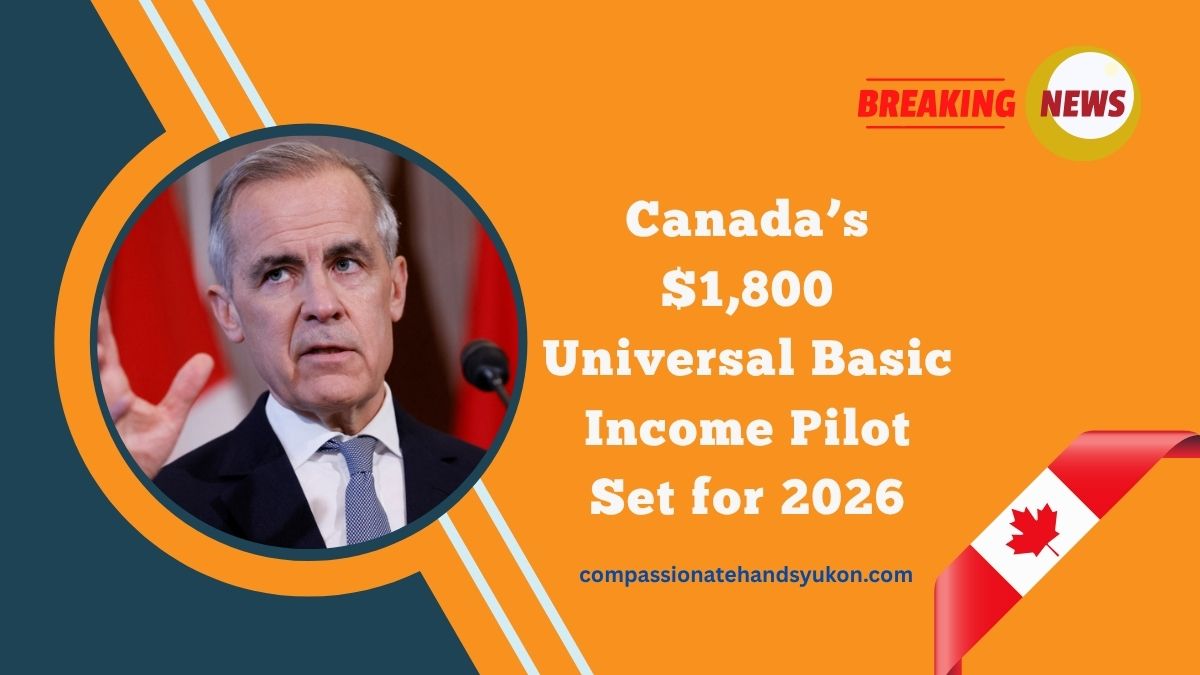Canada is set to begin a groundbreaking initiative in 2026 with the launch of the Canada Universal Basic Income (UBI) Pilot.
This federal trial will provide monthly tax-free payments to selected citizens to evaluate how guaranteed income impacts economic security, health, and employment behavior.
With widespread interest and growing support, the program is designed to last two years and could serve as a prototype for future income policies.
Who Is Eligible for the UBI Canada 2026 Pilot?
The UBI Pilot 2026 will include individuals selected based on specific eligibility criteria, focusing on diversity and financial need. Early information outlines the following eligibility parameters:
- Low to middle-income individuals and families
- Canadian residents aged 18 or older
- Residents of selected provinces, primarily Ontario and British Columbia
- Not currently receiving equivalent income support benefits
- A special emphasis on inclusion of Indigenous people, newcomers, and those with disabilities
The final eligibility list will be confirmed in early 2026 once legislative approvals are in place.
Payment Structure & Program Duration
Under this pilot, participants will receive tax-free monthly payments ranging from $1,200 to $2,400, depending on household composition and income levels.
Payments will be made directly to bank accounts, with no conditions on employment status, meaning participants can continue to work or study.
The program is scheduled to run for 24 months, with an optional extension depending on results and political consensus.
Here’s a breakdown of the expected monthly UBI payments:
| Household Type | Monthly UBI Amount | Taxable? | Conditions |
|---|---|---|---|
| Single Adult | CAD $1,200 | No | Income below $30,000/year |
| Couple | CAD $2,000 | No | Joint income below $50,000/year |
| Family with Children | CAD $1,800 – $2,400 | No | Based on number of dependents |
Why Is Canada Launching a UBI Pilot in 2026?
This new initiative is a response to multiple growing economic challenges, including:
- Automation and AI displacing traditional jobs
- The rise of gig and freelance work
- Soaring housing, food, and utility costs across Canada
- Rising calls for income equality and simplified welfare
The goal is to test whether unconditional basic income can offer stability, reduce reliance on multiple benefit programs, and improve physical and mental well-being.
What Makes the 2026 UBI Pilot Different?
Unlike previous attempts, such as Ontario’s 2017 pilot, which ended prematurely, this national-level pilot has several distinguishing features:
- Backed by both major political parties
- Broader demographic scope across multiple provinces
- Voluntary data integration for deep analysis of results
- Includes employment, education, and health outcomes
Participants will allow government researchers to monitor key life outcomes, ensuring data collected offers comprehensive insights into how basic income influences real-life choices.
The Canada Universal Basic Income Pilot 2026 may represent a major shift in social support policy. With clear eligibility rules, a substantial monthly payout, and strong governmental backing, this pilot will provide critical data on the effectiveness of guaranteed income.
If successful, it could lay the foundation for a permanent UBI program in Canada, creating a new model of income stability for the 21st century.
FAQs
Who will receive the payments in the Canada UBI 2026 trial?
Eligible participants will include low to middle-income adults, selected based on income, region, and demographic factors.
Will UBI payments affect other benefits?
Participants cannot receive similar income-support programs during the trial, but UBI is tax-free and will not affect employment income.
Can participants work while receiving UBI?
Yes. Participants are encouraged to work or study. The program will track how UBI affects work motivation and financial decisions.

